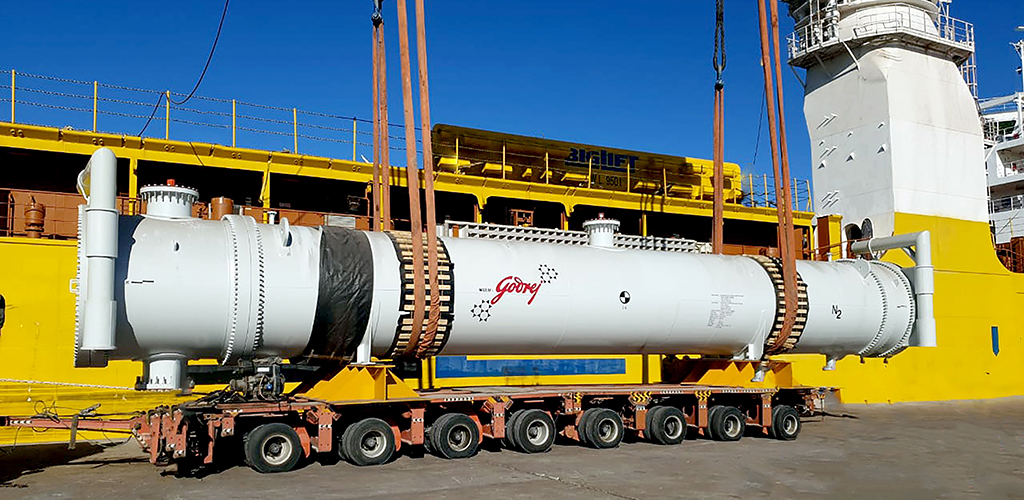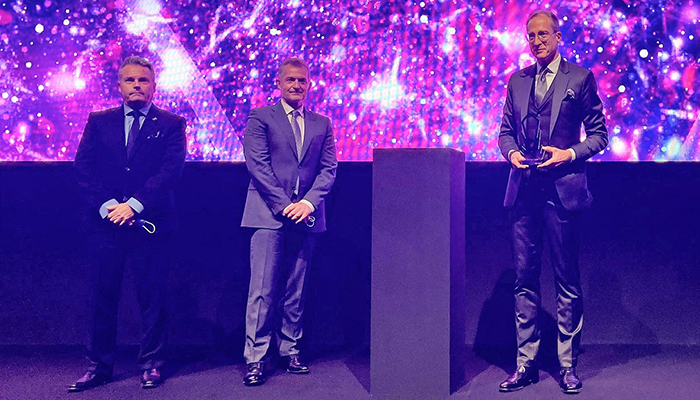Dec 15 | 2021
Recognized for ‘Resilience’ During Pandemic Crisis

Saudi Arabia’s King Abdullah Port received an Outstanding Achievement Award at the Seatrade Maritime Awards Middle East, Indian Subcontinent and Africa.
The prize, one of 16 handed out at this year’s Seatrade Maritime Middle East conference in Dubai, was presented to Saudi’s first privately owned port “in recognition of its stellar achievements and performance amid uncertain market conditions worldwide.”
The award also acknowledged its “remarkable resilience and crisis-responsiveness” during the pandemic, a period when ports and terminals worldwide were hit by shutdowns, labor shortages and cargo logjams.
 King Abdullah Port was “honored” to win the award. “Recognitions such as these strengthen our commitment to transform the kingdom into a top global hub connecting Asia, Europe and Africa,” said CEO Jay New.
King Abdullah Port was “honored” to win the award. “Recognitions such as these strengthen our commitment to transform the kingdom into a top global hub connecting Asia, Europe and Africa,” said CEO Jay New.Located 90 kilometers north of Jeddah on the Red Sea coast, King Abdullah is Saudi’s second-busiest container port, with an annual throughput capacity of 25 million 20-foot equivalent units, according to its website.
The facility, operated by Saudi’s Ports Development Company, was ranked the second-most efficient container port in the world last year by the Container Port Performance Index – the only port in the MENA region to make it to the top list.
Breakbulk Project Cargo Gateway
King Abdullah, an exhibitor at Breakbulk Middle East, Feb. 1-2 at the Dubai World Trade Centre, Dubai, is also a major gateway for breakbulk and project cargo. The port’s bulk and general cargo terminal, operated by Saudi’s AMSteel since 2017, has a capacity to handle 30 million tonnes of clean bulk cargo per year.
Last year, the terminal completed the last phase of handling 3,200 tonnes of machinery including steamers, condensers, desuperheaters, debutanizers and reboilers for the PetroRabigh Phase II petrochemical expansion project at Rabigh, about 50 kilometers north of the port.
Other nearby mega-projects calling for breakbulk support include an expansion of Mecca’s Grand Holy Mosque, a Red Sea tourism project and the construction of Neom, a US$500 billion “smart city” on the Red Sea coast that is expected to house port facilities, sports stadiums, green hydrogen plants and a 170-kilometer metro line dubbed The Line.
“These projects will require more construction and development materials to be imported into the kingdom, and will ultimately lead to the increased import of project cargo,” a spokesperson told Breakbulk. “This creates tremendous opportunities for King Abdullah Port.”
